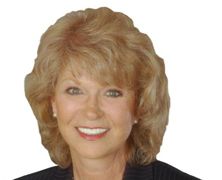When I was asked to write this essay, I began to wonder what characteristics these trusted advisors had in common. So, I conducted a little research, contacting colleagues, many of whom are great mentors themselves, and posing this question: What makes someone an effective mentor?
My colleagues described effective mentors as:
Knowledge Bearers/Sharers. Many mentioned that mentors’ knowledge is indisputable and encompasses professional know-how and an understanding of their company’s landscape, culture, and political eccentricities. They are openly generous with advice to help others achieve their professional goals and avoid pesky landmines along the way!
Cheerleaders. Mentors are optimistic realists; they know nothing is perfect but exude the sense that it can be. With an exceptional ability to spot potential in others, an effective mentor always addresses mentee struggles with honesty, respect and a positive outlook.
Experienced Explorers. Mentors have “been there, done that, and have the t-shirt.” They can provide road maps with clear routes between points A and B. Every encounter with a mentee is an opportunity to listen, empathize, achieve mutual understanding and create new possibilities.
Trustworthy Confindants. Perhaps the most important aspect of a mentoring relationship is trust. Effective mentors shun taking credit for mentees’ achievements. They refrain from passing judgment, taking sides and spreading gossip. They are respected for maintaining strict confidentiality regarding sensitive company matters.
Winners In Work And Life. Many of my colleagues felt that effective mentors are never too busy to spend time helping others. No question their success on the job is probably part of company lore, but they’re also respected for having achieved a healthy balance, and might be the first to suggest,“Why don’t you take a few days off?”
Big Picture Thinkers. Most saw managers as focused on the day-to-day,while mentors focused on the larger landscape and the greater good. Mentors see the future in talented people and nimbly cross reporting lines to help improve performance in any functional area.
In Conclusion… This exercise helped me understand that striving to be an effective mentor brings value to my company’s greatest asset, our people. Nothing brings me more satisfaction than seeing co-workers I’ve mentored build impressive careers. I hope they’ll share their experiences with others, and find out for themselves just how rewarding mentoring can be!







